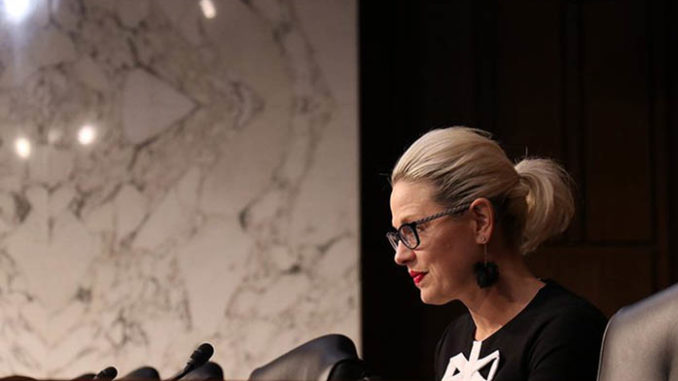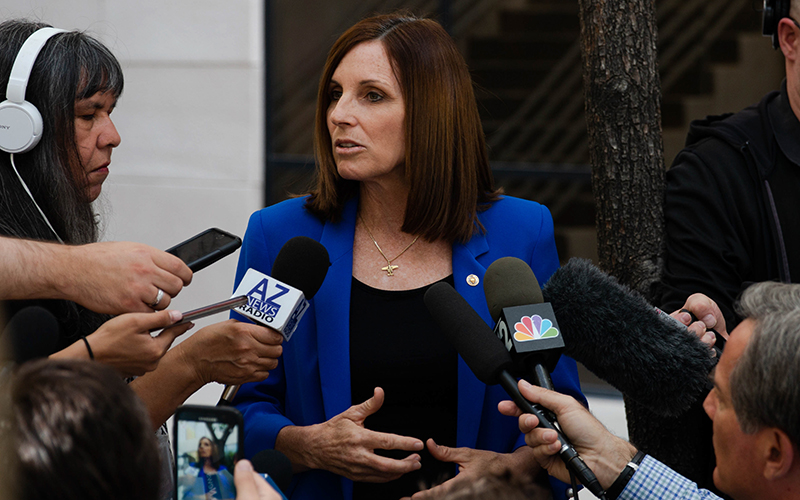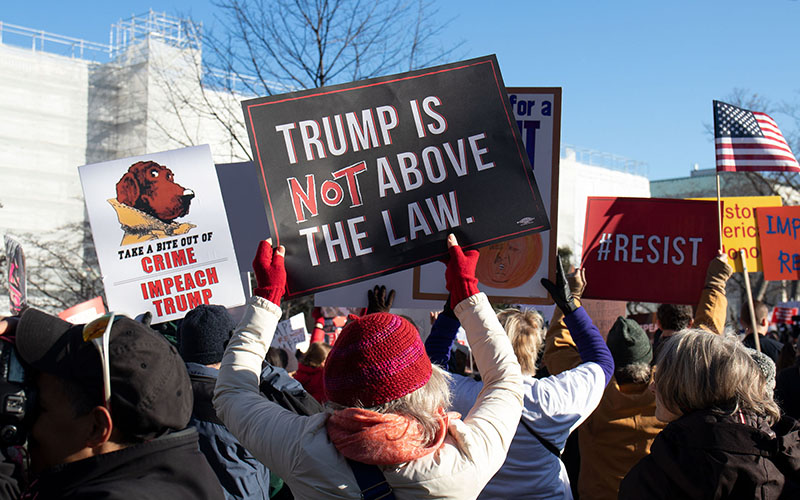
WASHINGTON – Arizona Sen. Kyrsten Sinema broke her silence Friday, voting with other Democrats in a failed attempt to call more witnesses in President Donald Trump’s impeachment trial, which now heads to a final vote next week.
The 51-49 vote rejected efforts by Democrats to call witnesses like former National Security Adviser John Bolton, who they said could provide new evidence of Trump forcing political favors from Ukraine by withholding military aid for that country.
But many Republicans appeared to be like Sen. Martha McSally, R-Arizona, who said in a tweet this week, “I’ve heard enough. It’s time to vote.” Only two Republicans, Mitt Romney of Utah and Susan Collins of Maine, joined Democrats to vote for more witnesses.
It was one of the last procedural votes in the trial, clearing the way for debate and a final vote by the Senate next week on whether or not to remove Trump from office.
Unlike a typical Senate debate, Friday’s vote came as the senators were sitting as an impeachment court, which meant they were limited to announcing – but not discussing – their yea or nay votes during the session. Neither Sinema nor McSally responded to requests for comment Friday on their votes.
But House impeachment managers had plenty to say during four hours of debate Friday on the need to call more witnesses – something they have been pushing for since before the Senate trial began.
Those calls grew louder this week when the New York Times published details from an upcoming book by Bolton, in which he reportedly claims that Trump explicitly said his pressure on Ukrainian officials was aimed at hurting former Vice President Joe Biden, a possible Trump challenger this fall.
Bolton refused to testify to House committees investigating the president, but has since said he would testify if called by the Senate, said Rep. Adam Schiff, D-Calif., and the lead manager of the House’s impeachment case in the Senate.
“Here you have the president saying John Bolton is not telling the truth – let’s put John Bolton under oath. Let’s find out who’s telling the truth,” Schiff said Friday. “A trial is supposed to be a quest for the truth.”
House impeachment managers repeatedly implored senators to make the right decision and call witnesses.
But White House lawyers said the House has had plenty of opportunity to make its case during months of hearings and to present its case to the Senate this month. Over the past nine days, each side was allowed 24 hours to make its case, followed by 16 hours of questioning by senators and two hours of arguments for each side Friday.
“Under our constitutional design, they’re supposed to investigate, you’re to deliberate,” said Jay Sekulow, Trump’s attorney for the impeachment trial, told senators. “What they’re asking you to do is now become the investigating agency.”
Sekulow said that if Bolton was called and cross-examined, it could open the door to reopening testimony from all the witnesses, potentially extending the trial for weeks.

McSally said Wednesday that it is time to move on.
“After two weeks in the Senate, 13 witnesses and 28,000 pages of evidence, it is time for the Senate to vote and return its focus to the priorities of the American people,” she tweeted.
Friday’s vote was followed by a series of last-ditch Democratic efforts to tack amendments on to the resolution outlining the final rules for impeachment. Each amendment – which proposed a variety of ways to subpoena witnesses or documents – was rejected on party-line votes.
During a brief visit to McSally’s office Friday, the phones were ringing non-stop – but the impeachment debate is not over yet.
Senators recessed for the weekend but will be back Monday when the House managers and the White House counsel will each get another two hours to make a final argument. Then the floor will be opened to senators, who will be given 10 minutes each to speak from Monday through Wednesday – with a break Tuesday night, when the president is scheduled to deliver his State of the Union address to a joint session of Congress.
The House made Trump just the third president in history to be impeached when it voted in December to approve two articles of impeachment related to the Ukrainian incident: abuse of power and obstruction of Congress. Articles are forwarded to the Senate, which holds a hearing to determine whether to remove the president from office.

